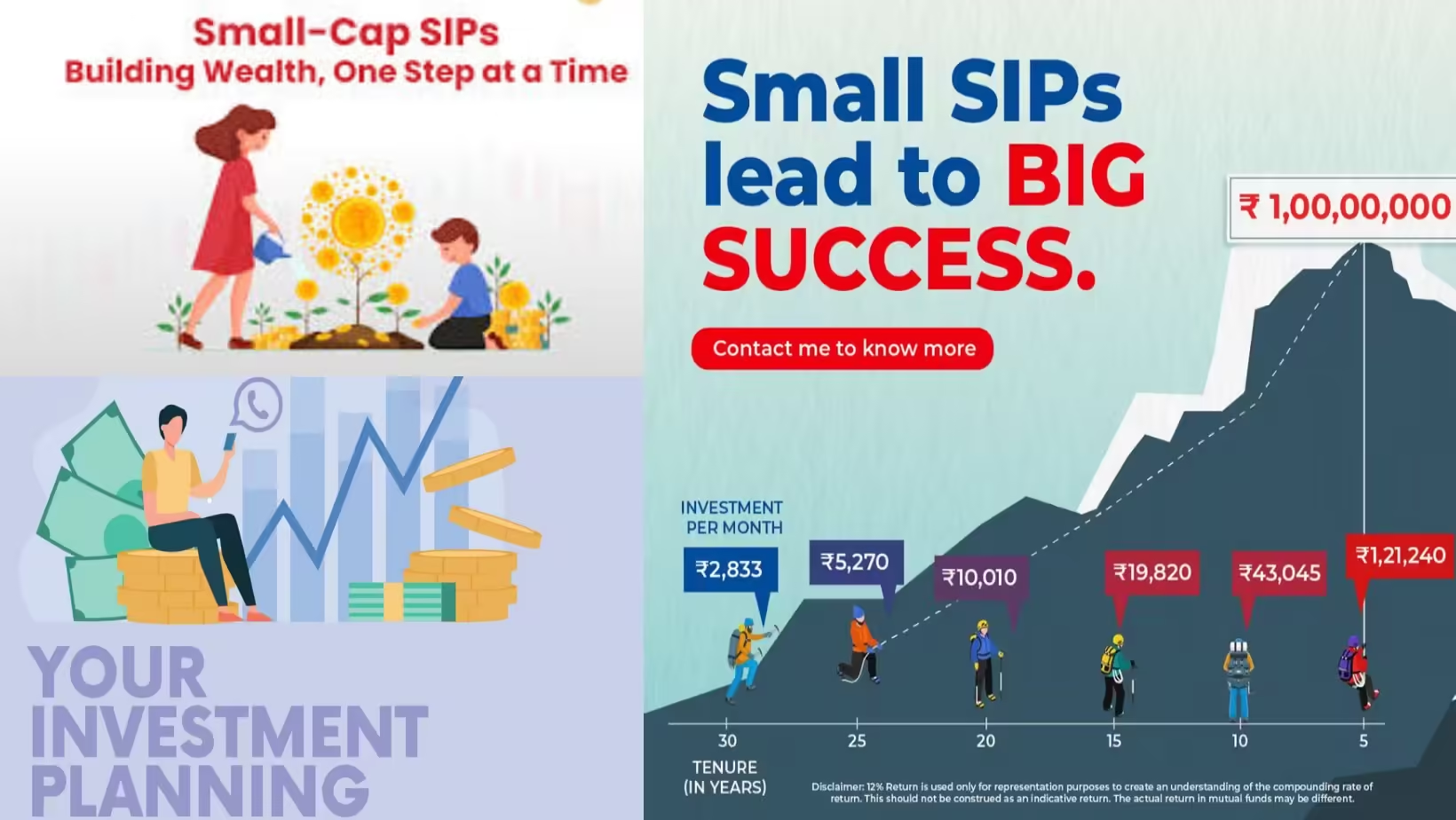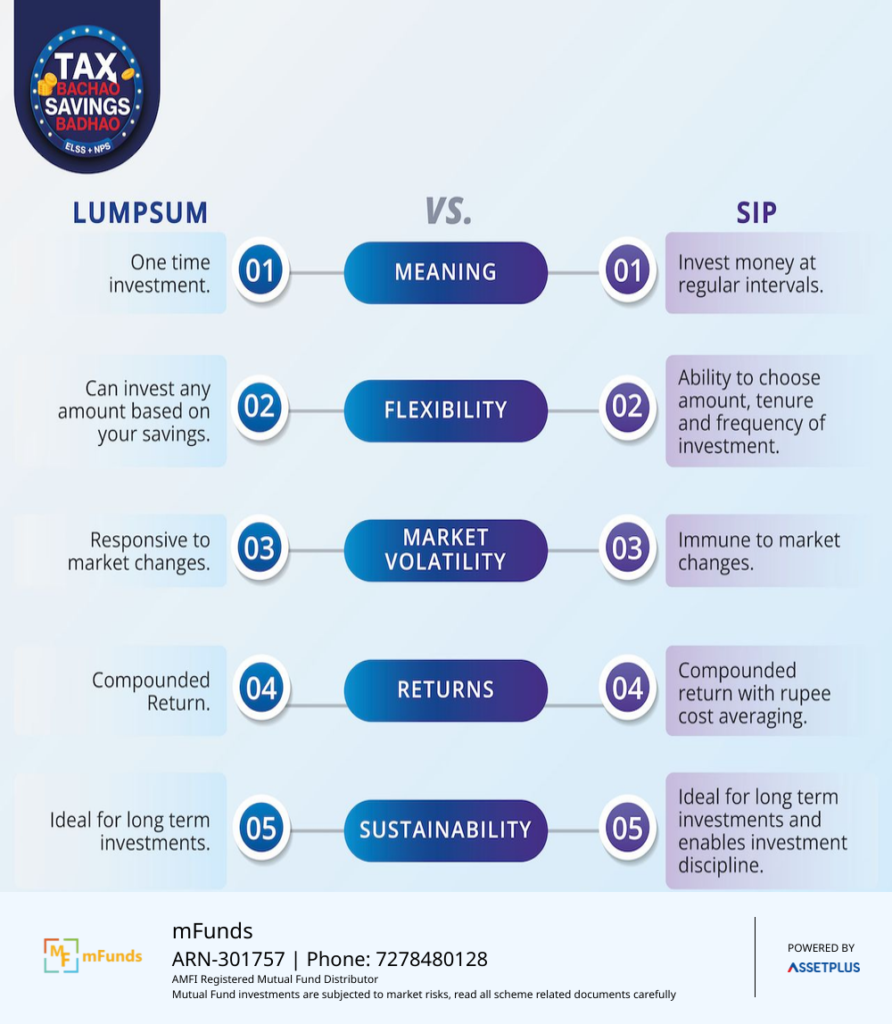Are you one of the people who are attracted by high risk and high return investments? Small-cap SIP stocks are the ideal option. But, they are extremely risky because of their ability to fluctuate wildly in price. Many investors favor smaller-cap SIPs due to their large yields.so,Avoiding Common Mistakes for Successful Investing we will focus here.
This year was all about smaller caps that shined brighter than larger caps. They were the big winners of 2023and enticed investors with their remarkable results. The swings and valleys of this volatile market isn’t an easy task.
Sometimes, the prospect of huge profits could cause investors to ignore the smaller-cap mutual fund risks.
Understanding the concepts of the small-cap SIP (Systematic Investment Plan) and the risks associated with small-cap mutual funds is crucial.
What is Small Cap SIP?
Small Cap SIP involves regularly investing a predetermined amount into small-cap mutual funds for a period of the course of. In contrast to lump sum investments, SIP permits investors to invest in smaller enterprises. This can help reduce the effect of market volatility.
Small-cap businesses typically show the potential for growth to be extremely high. They are also susceptible to more volatile market conditions. SIPs can help reduce this danger by delaying the purchase price over the period of time. This can lead to a greater chance of return over time.
Begin with a mutual fund SIP that has no brokerage on the trading on the internet.
Benefits of Small Cap SIP
The investment in a small-cap SIP provides numerous benefits:
1. Affordability
SIPs permit investors to begin with small sums, which makes them accessible to those who are new.
2. Discipline
Regular investments help to develop discipline, and promote long-term accumulation of wealth.
3. Diversification
SIPs allow investors to spread their investments across a range of small-cap companies, which reduces the chance of concentration.
4. Rupee Cost Averaging
The investment of fixed sums in small-cap SIPs regularly allows you to buy additional units. This is the case when price levels are lower.
There is a possibility of buying smaller quantities when the costs are higher, and then spread on the cost of purchase in the course of.
Drawbacks of Investing in Small Cap Mutual Funds
Small-cap mutual funds come with certain risks in spite of their potential rewards.
- They’re Highly Volatile:
Small-cap funds are more likely to suffer substantial price volatility, which can make these investments risky.
If prices do not move in the direction anticipated, investors may suffer significant loss.
- Low Liquidity:
Small-cap mutual funds usually contain fewer institutional investors as well as smaller participation of retail investors.
It can cause difficulties with liquidity and make it hard to buy and sell units of funds on the marketplace.
Mistakes to Avoid Small-cap Mutual Funds Risk
To avoid making mistakes when it comes to small-cap mutual funds is to steer away from risky investments.
Be vigilant and secure your investments, and to ensure development.
- Timing Entry and Exit
The stunning returns in 2023 could entice investors consider small cap stocks as a fast way to riches.
The expectation of rapid gains comparable to those in fictional tales such as Hera Pheri’s Laxmi Chit Fund is impractical.
A successful small-cap investment requires planned timing and perseverance for the growth.
- Gradual Investment
The urge to take advantage of the momentum generated by small-cap SIP could be intense. But, jumping in head-first isn’t a good idea. Because of the risk and uncertainty when investing, smart investors should start with a cautious allocation. As they grow, investment the market and its opportunities develop.
- Valuation Metrics
Relying on only price-to-earnings (PE) ratios For valuation, investors could be misled. The reason for this is the variety of the small-cap SIP shares.
You should evaluate the your long-term growth outlook markets, opportunities for growth, as well as your financial performance.
- Thorough Research
A thorough research approach is vital to knowing the small-cap SIP investment.
It is essential to analyze financial information as well as industry trends as well as management comments throughout a lengthy period.
This allows you to identify potential opportunities, while minimizing the risk caused by unidentified factors.
- Tailored Approach
Every SIP business with a small cap operates in a specific context. It is important to avoid using standard strategies across different industries.
It is crucial to concentrate on a specific analysis of the individual companies.
Tax Implications For Small Cap SIP
Earnings derived made from SIPs are susceptible to capital gains tax dependent on the period of their holding. SIPs that are equity-oriented SIPs which are kept for more than one calendar year can be subject to capital gains tax for the long term with indexation advantages.
When you embrace smaller-cap SIPs You can start by following a systematic and disciplined strategy.
Conclusion
Small-cap SIPs provide attractive yields, they are important to be cognizant of investment risk in mutual funds. Small-cap SIP needs a lot of patience, diligence and a specialized method to minimize the risks. The small-cap market experienced remarkable growth between 2023 and 2024. It beat large-cap SIP and returned more than 55 percent. But, the lure of high returns may obscure the risks inherent to the volatile market. It is essential to do your research and stay away from taking rash decisions in order to avoid the risk of being exposed.
FAQs | Small Cap SIP Mutual Funds
Are Small Cap SIP safe?
Small-cap SIPs are investments in firms with lower market capitalization. This can pose a higher risk due to the increased risk of volatility. But, they offer the possibility of better returns over the longer time.What is Small Cap and Mid Cap SIP?
Small-cap SIP involves investing in mutual funds that target companies that have smaller market capitalizations. Mid-cap SIPs provide a balance between stability and potential growth.Are SIP funds risky?
SIPs require regular investment in mutual funds, and they are susceptible to market risk. Although SIPs may reduce the risk of market timing, they can not ensure returns. They can be a bit different based upon the conditions of the market.
______________________________________________________________________________________
Disclaimer Securities market may be a susceptible to risk from the market and you should read the relevant documents thoroughly before making any investment.




















